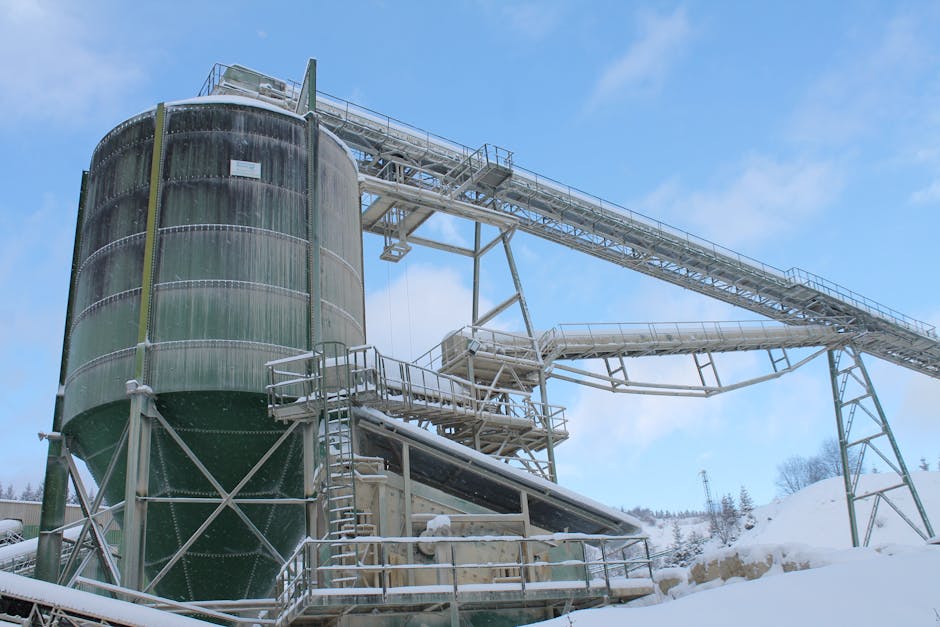Unlock encrypted content
Please enter your SSCE key to initiate on-the-fly decryption.
Decryption key: (Click cancel if you don't have the key)
Copied link to clipboard.
This feature is unavailable for free accounts. Upgrade now and enjoy all Premium benefits.
Go Premium!
This feature is unavailable for free accounts. Upgrade now and enjoy all Premium benefits.
Go Premium!
Please open this page in browser ( Google Chrome or Safari ) to use this feature.
Open In Browser
Edge Computing: Revolutionizing Data Storage and File Sharing
Random related video for this blog.
Copied share link to clipboard.
With the increasing volume of data being generated and the demand for seamless file sharing across various devices, traditional methods of data management are no longer sufficient. This is where edge computing comes into play, offering advanced downloading tools, large file sharing capabilities, and enhanced metadata management to meet the evolving needs of individuals and businesses alike.
Edge Computing: Empowering Large File Sharing
Large file sharing has always been a challenge due to limitations in network bandwidth and latency. However, edge computing has emerged as a game-changer in this regard. By bringing computing resources closer to the edge of the network, edge computing minimizes the distance data needs to travel, resulting in faster and more efficient file transfers. One notable example of edge computing's impact on large file sharing is the rise of autonomous vehicles. These vehicles generate an enormous amount of data that needs to be shared and processed in real-time. With edge computing, the data can be stored and processed locally, reducing the need for constant back-and-forth transfers to a centralized server. This not only speeds up the sharing process but also enhances the overall performance and safety of autonomous vehicles.Advanced Downloading Tools for Enhanced Efficiency
In addition to large file sharing, edge computing offers advanced downloading tools that further enhance efficiency and convenience. These tools leverage the power of edge servers to enable faster and more reliable downloads, even in areas with limited connectivity. For instance, imagine you're downloading a large file from the cloud server. With edge computing, the file can be stored and cached on a nearby edge server, ensuring a smooth and uninterrupted download experience. This eliminates the need to rely solely on a distant cloud server, reducing latency and improving overall download speeds.Advanced Metadata Management and Data Deduplication
Metadata management isa critical aspect of data storage and file sharing. It involves organizing and categorizing data to enable efficient search and retrieval. Edge computing takes metadata management to the next level by leveraging advanced algorithms and machine learning techniques. By intelligently analyzing the metadata associated with files, edge computing enables faster search and retrieval, saving valuable time and effort. Additionally, edge computing incorporates data deduplication techniques, which eliminate redundant data and optimize storage capacity. This ensures that only unique data is stored, reducing storage costs and improving overall system performance.
Cloud Storage for Individuals: Secure and Reliable
Cloud storage has become an integral part of our digital lives, offering a convenient and accessible solution for data storage and file sharing. With edge computing, cloud storage for individuals is taken to new heights, providing enhanced security and reliability. Edge computing allows for the deployment of edge servers in close proximity to users, ensuring that their data remains secure and protected. This eliminates concerns about data breaches and unauthorized access, as data is stored and processed locally rather than relying solely on a centralized cloud server. Furthermore, edge computing offers advanced file recovery capabilities, ensuring that individuals can easily retrieve their files in the event of accidental deletion or system failure. With edge servers acting as backup points, individuals can rest assured that their data is safe and can be recovered seamlessly. In conclusion, edge computing has revolutionized data storage and file sharing by offering advanced downloading tools, large file sharing capabilities, advanced metadata management, and enhanced security. With its ability to bring computing resources closer to the edge, edge computing ensures faster and more efficient file transfers, even for large files. Moreover, its advanced metadata management and data deduplication techniques optimize storage capacity and improve search and retrieval processes. For individuals, edge computing provides secure and reliable cloud storage with advanced file recovery options. Embracing edge computing is the key to unlocking the full potential of data storage and file sharing in the digital era.Frequently Asked Questions (FAQs)
Question: How does edge computing improve large file sharing? Answer:
Edge computing reduces the distance data needs to travel by bringing computing resources closer to the edge of the network. This results in faster and more efficient file transfers, especially for large files.
Question: What are advanced downloading tools in edge computing? Answer:
Advanced downloading tools in edge computing leverage edge servers to enable faster and more reliable downloads. These tools store and cache files on nearby edge servers, reducing reliance on distant cloud servers and improving download speeds.
Question: How does edge computing enhance metadata management? Answer:
Edge computing uses advanced algorithms and machine learning techniques to analyze and organize metadata associated with files. This enables faster search and retrieval, saving time and effort for users.
Case Studies Case Study 1: Autonomous Vehicles Data Storage A leading autonomous vehicle manufacturer implemented edge computing to address their data storage and file sharing needs. By leveraging edge servers installed in their vehicles, they were able to store and process data locally, reducing reliance on a centralized server. This resulted in faster data sharing and improved vehicle performance, ensuring a safer and more efficient autonomous driving experience. Case Study 2: Individual Cloud Storage An individual seeking a secure and reliable cloud storage solution opted for edge computing-based cloud storage. By utilizing edge servers, their data was stored and processed locally, ensuring enhanced security and reducing the risk of data breaches. Additionally, the advanced file recovery capabilities offered peace of mind, allowing the individual to easily retrieve their files whenever needed. Case Study 3: Large File Sharing A media production company faced challenges in sharing large video files with clients and collaborators. By adopting edge computing, they were able to leverage advanced downloading tools that stored and cached files on nearby edge servers. This resulted in faster and more reliable file transfers, improving collaboration and customer satisfaction. By embracing edge computing, individuals and businesses can unlock the full potential of data storage and file sharing. The advanced capabilities offered by edge computing, such as large file sharing, advanced downloading tools, advanced metadata management, and secure cloud storage, empower users to efficiently manage their data and streamline their workflows. To experience the benefits of edge computing for data storage and file sharing, explore FileLu's comprehensive range of premium plans and free options. With FileLu's large file transfer capabilities and secure cloud storage solutions, you can take your data management to new heights. FileLu – Your Ultimate Solution for File Transfer, Cloud Storage, and Data Security.
By Amelia Isabella
Email: [email protected]
Related
Brain-Computer Interfaces (BCIs): The Future of Password Security and File...
July 15, 2023
Read More
<h1>Unlocking the Future: Exploring the Potential of Brain-Computer Interface and...
July 15, 2023
Read More
Customizable Storage Plans: Creating Folders and Multi-Factor Authentication for Secure...
July 15, 2023
Read More
Efficient File Manager System: Revolutionizing Cloud Storage Reliability with 5G...
July 15, 2023
Read More
<h1>Efficient and Secure File Storage with Artificial Intelligence and Cloud-native...
July 16, 2023
Read More
Popular
Latest
The Future of Digital Transformation: Exploring Smart Homes, Efficient File...
November 30, 2025
Read More
Exploring the Benefits of Cloud Storage and Innovative Technologies in...
November 26, 2025
Read More
The Future of Technology: Exploring Biohacking, Space Tourism, and Digital...
November 23, 2025
Read More
The Future of File Sharing: Streamlined Workflows for Photographers and...
November 19, 2025
Read More
Exploring the Intersection of Technology: From Cybersecurity to Augmented Reality...
November 16, 2025
Read More
The Future of File Management: Embracing Edge Computing and Efficient...
November 12, 2025
Read More
The Future of File Sharing: Exploring User-Friendly Solutions and Data...
November 5, 2025
Read More
The Future of Cloud Storage: How FileLu Empowers Creative Professionals...
November 2, 2025
Read More
The Future of Autonomous Technologies: Innovations in Robotics, File Sharing,...
October 29, 2025
Read More
Emerging Technologies Revolutionizing File Management: From Li-Fi to Robust Collaboration...
October 26, 2025
Read More
Emerging Technologies: Exploring the Impact of File Access Auditing, Genetic...
October 19, 2025
Read More
The Future of Data Storage: Exploring Advanced Encryption, Mobile Integration,...
October 5, 2025
Read More
Exploring the Future of Data Management: Security, Efficiency, and Cognitive...
September 28, 2025
Read More
Revolutionizing Data Management: Innovations in Storage, Security, and Sustainable Technology.
September 24, 2025
Read More
















